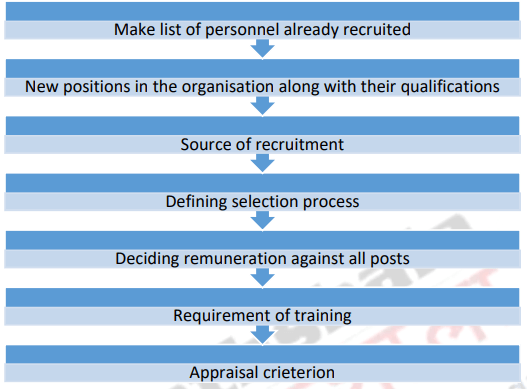FUNCTIONS OF A ENTREPRENEURS: Countries economic development in present mscenario depends majorly upon the entrepreneurial development and thus making entrepreneurship important. Industrial development, employment generation and overall development of countries depend upon entrepreneurial development. We can summarise here that entrepreneurs make then foundation of industrial development and thus foster regional development.

i. FUNCTIONS PERFORMED BY ENTREPRENEURS AT ENTERPRISE LEVEL
Following are the categorisation of functions performed by the entrepreneurs in due course of their initiatives to execute their out of box idea;
A. Entrepreneurial Functions:
To think of a business idea which does not exist in the market but the scope for the same is ample is the first and foremost function of entrepreneurs. The key entrepreneurial task includes taking risk, organizing, innovating and most importantly optimum utilisation of resources.
B. Managerial Functions
Modern concept of business management focuses upon achieving the goals while utilising minimum resources of the organisation. According to father of management principles Henri Fayol, “management is to forecast, to plan, to organize, to command, to co-ordinate, and to control. ”Management is a process which includes functions such as; planning, organizing, staffing, Entrepreneur performs following functions at enterprise level: budgeting and controlling of performance in order to achieve the desired objectives with optimum utilisation of resources of the organisations.
The importance of functions of management is in the fact that to achieve the maximum output with minimum resources which even can’t be achieved with ample resources if management principles are not followed effectively. In small entrepreneurial ventures it’s only the entrepreneur who envisages his vision and experience thereby applying the management principles to make his business idea a grand success.
Entrepreneur performs below principles of management;
- Planning
Effective planning is the blue print to success. Plans provide a roadmap to proceed in direction of achieving targets in stipulated time frame while minimising wastage of time, money and human efforts. The task of planning is a intellectual process and needs the inputs from within and outside the organisations. The success of the plan depends upon the skills of the individual who made a plan and authenticity of the sources on the basis of which planning has been done. During the planning process an entrepreneur decides what is to be done, how should be done, when should be done, where to be done, by whom it should be done and so on and so far.There should be always a scope of flexibility in the best plans. - Organising
Henry Fayol defines organising as, “The organizing function of an entrepreneur refers to bringing together the five M’s men, material, machine, money and methods to execute the plans”. It is the job of the entrepreneur to organise all five M’s in such a manner so that they work in close coordination of each other and seems as a single unit working on a plan for target oriented results. - Staffing
Henry Fayol defines directing as, “The staffing function of management controls all recruitment and personnel needs of the organization. The main purpose of staffing is to hire the right people for the right jobs to achieve the objectives of the organization”. Thus to execute the function of staffing an entrepreneur performs following process;

- Directing
Henry Fayol defines directing as,“it is that part of managerial function which actuates the organizational methods to work efficiently for achievement of organizational purposes. It is considered life-spark of the enterprise which sets it in motion the action of people because planning, organizing and staffing are the mere preparations for doing the work”.
Directing is the functions which can be termed as actions on the ground as previous three functions are related to pre preparations for a business. Here under directing function an entrepreneur activates his workforce to perform actions working on the plan to achieve the preset objectives. Here interpersonal and managerial skills of the individual are considered as important aspect for fulfilment of the objectives. - Controlling
Henry Fayol defines a four-step process in as “Establish performance standards based on organizational objectives, Measure and report on actual performance, Compare results with performance and standards, Take corrective or preventive measures as needed”. Being the last function in the process of management controlling is to check for the process and activities in accordance with the planning or not.In controlling a one to one comparison with plan layout is there with the outcomes and if there is need to take corrective measures entrepreneur then takes it suitably to reach to the target.
C. Promotional Functions
- Business Idea Development:
It is foremost focus of every entrepreneur to begin the foremost profitable and unique business venture. That depends upon the business idea development and section of the process to understand the dreams. The budding entrepreneur, through his understanding, skill, and knowledge acquired from society conceive a practical business idea which may be pondered upon through establishing an enterprise. This process also involves studying the appropriate case studies of comparable business processes in and round the globe so reaching a conclusion of the thought which omits the explanations which leads the business to a failure one. - Detailed Project Report (DPR) or Business Plan:
A black and white detailed project report of the business which may be termed as business plan is that the next step performed by the entrepreneur. Business plan may be a document which describes the course of action to be followed by the enterprise of an entrepreneur so as to attain the objectives within a stipulated time-frame. So we are able to term business plan as an operating blueprint of the venture. it’s not mandatory to arrange a business plan but it’s customary and extremely useful for the venture to figure in an exceedingly smooth manner. - Requirement for Finance:
For those entrepreneurs who intends to require financial help from the agencies in type of loan it’s mandatory for them to be satisfy with the model of the business plan which can be successful in due course of your time and so they require the detailed project report or business plan. the knowledge desirable within the business plan submitted for loan may contains the non-public details of the entrepreneur, location of the business, requirement of the movable and immovable assets, machines and technology, staple, communication and transportation, manpower requirement, potential customers, capital and forecast about the profits outcomes and future expansions also.
D. Commercial Functions
- Manufacturing or production
Business plan could be a document which describes the course of action to be followed by the enterprise of an entrepreneur so as to realize the objectives within a stipulated timeframe. Once the design a part of the business is finished up to the stage of arrangement of the finances for the business idea, production includes the choice of the location for producing goods or delivering services. Site selection is such a choice which might make or break the progress of a business process and acute care must be taken while finalising site. Once the location is finalised the subsequent task to place in situ all related production or delivery units to deliver effective and desired results. - Marketing of business
Marketing is all about making potential customers privy to the products and services or we are able to say that education the longer term and existing customers about the technicalities and usefulness of the products and services the organisation is offering within the market. Modern marketing concept says that to get profits through a customer satisfaction, so for the entrepreneurs it became vital to contemplate the satisfaction level of the purchasers as they may not have excess take into account aggressive marketing like big corporate houses.
ii. FUNCTIONS PERFORMED BY ENTREPRENEUR AT INDIVIDUAL LEVEL
The following points highlight the highest five functions of an entrepreneur. The functions are:
- Deciding
The primary task of an entrepreneur is to choose the policy of production. An entrepreneur is to work out what to provide, what quantity to provide, the way to produce, where to supply, a way to sell and’ so forth. Moreover, he’s to choose the size of production and therefore the proportion during which he combines the various factors he employs. In brief, he’s to form vital business decisions regarding the acquisition of productive factors and to the sale of the finished goods or services. - Internal control
Earlier writers accustomed consider the internal control one among the chief functions of the entrepreneur. Management and control of the business are conducted by the entrepreneur himself. So, the latter must possess a high degree of management ability to pick the correct sort of persons to figure with him.
But, the importance of this function has declined, as business nowadays is managed more and more by paid managers. - Division of Income
The next major function of the entrepreneur is to create necessary arrangement for the division of total income among the various factors of production employed by him. whether or not there’s a loss within the business, he’s to pay rent, interest, wages and other contractual incomes out of the realised sale proceeds. - Risk-Taking and Uncertainty-Bearing
Risk-taking is probably the foremost important function of an entrepreneur. Modern production is extremely risky as an entrepreneur is required to provide goods or services in anticipation of their future demand.
Broadly, there are two styles of risk which he needs to face. Firstly, there are some risks, like risks of fire, loss of products in transit, theft, etc., which may be insured against. These are referred to as measurable and insurable risks. Secondly, some risks, however, can not be insured against because their probability can not be calculated accurately. These constitute what’s called uncertainty (e.g., competitive risk, technical risk, etc.). The entrepreneur undertakes both these risks in production. - Innovation
Another distinguishing function of the entrepreneur, as emphasised by Schumpeter, is to make frequent inventions — invention of recent products, new techniques and discovering new markets — to enhance his competitive position, and to extend earnings.
FUNCTIONS OF A ENTREPRENEURS.
FUNCTIONS OF A ENTREPRENEURS.
You may interested to read this ENTREPRENEURSHIP



